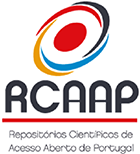Some observations about medical practice and culture at Lisbon’s Todos-os-Santos Hospital during the Enlightenment Era
DOI:
https://doi.org/10.48751/CAM-2019-11150Keywords:
Physicians, Surgeons, Hospital, Illuminism period, LisbonAbstract
This article describes and documents the important role and influence of the Todos-os-Santos Royal Hospital in producing trained, licensed physicians and surgeons for service in the Lusophone world. During the seventeenth and the first half of the eighteenth centuries, until to the 1755 earthquake, the Todos-os-Santos Royal Hospital in Lisbon (which offered formal instruction in practical medicine), along with the antiquated medieval curriculum of the Faculty of Medicine of the University of Coimbra, were the only medical training centers structured in Portugal. This had serious implications for conventional medical treatment and practices. Even in Enlightenment era, in Portugal, training for state-licensed healers was, at best, limited and inadequate. The Hospital was the main practical training facility for the medical arts during the late seventeenth and first half of the eighteenth century, and was more open to innovations of surgical technique and applied medicines; it was there that the most innovative official medical teaching in Portugal occurred until the end of the reign of Dom João V. For example, the hospital boasted of a separate ward built and staffed especially for the mentally ill, and experimented with remedies for tropical diseases, often with indigenous medicines imported from the colonial empire.
Downloads
Downloads
Published
How to Cite
Issue
Section
License
Copyright (c) 2019 Timothy Walker

This work is licensed under a Creative Commons Attribution-NonCommercial 4.0 International License.
The authors retain copyright and grant the journal the right of first publication, with the work simultaneously licensed under the Creative Commons Attribution License CC BY-NC 4.0 which allows sharing and adapting the text as long as its authorship is correctly attribbuted with recognition of the initial publication in this journal.









